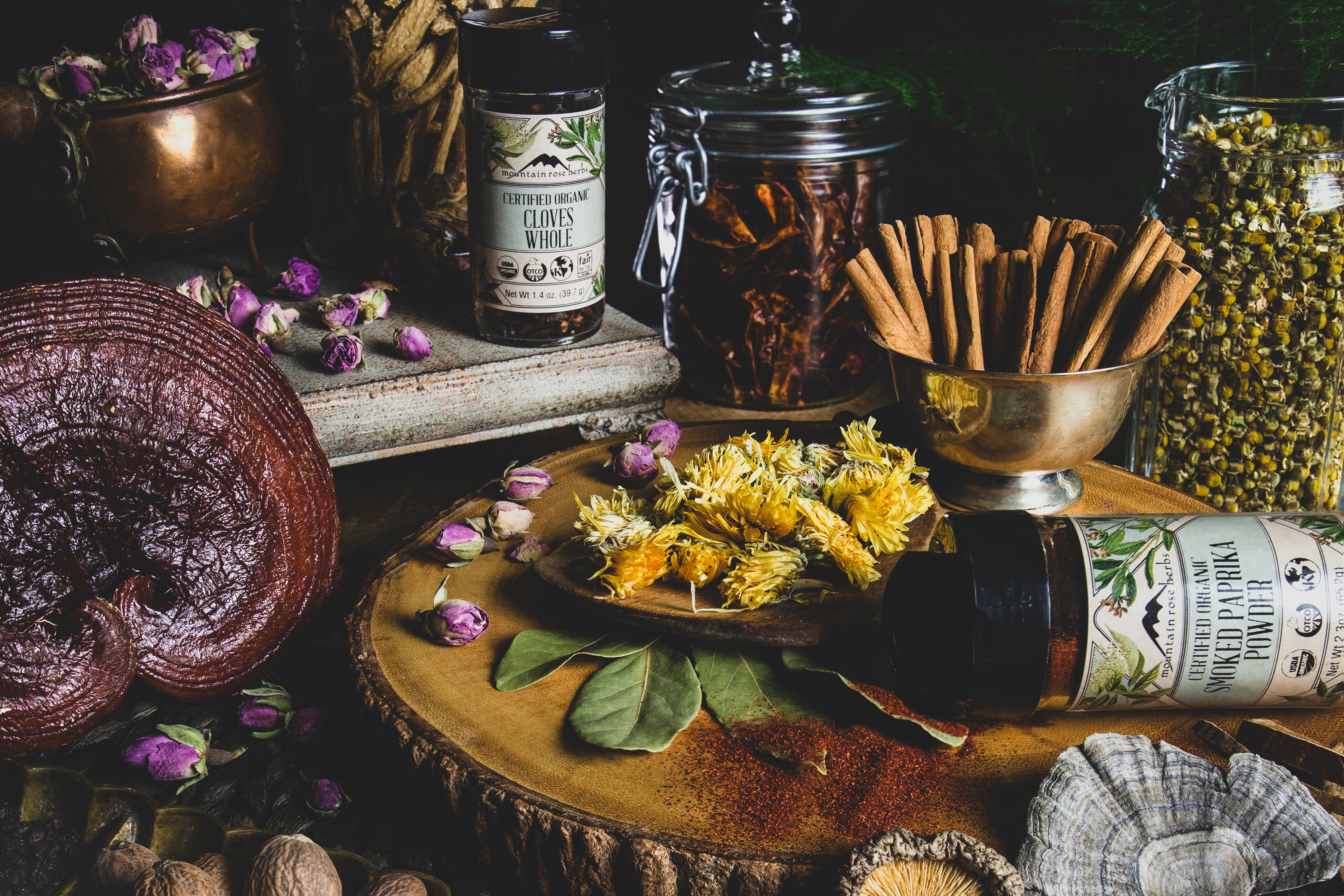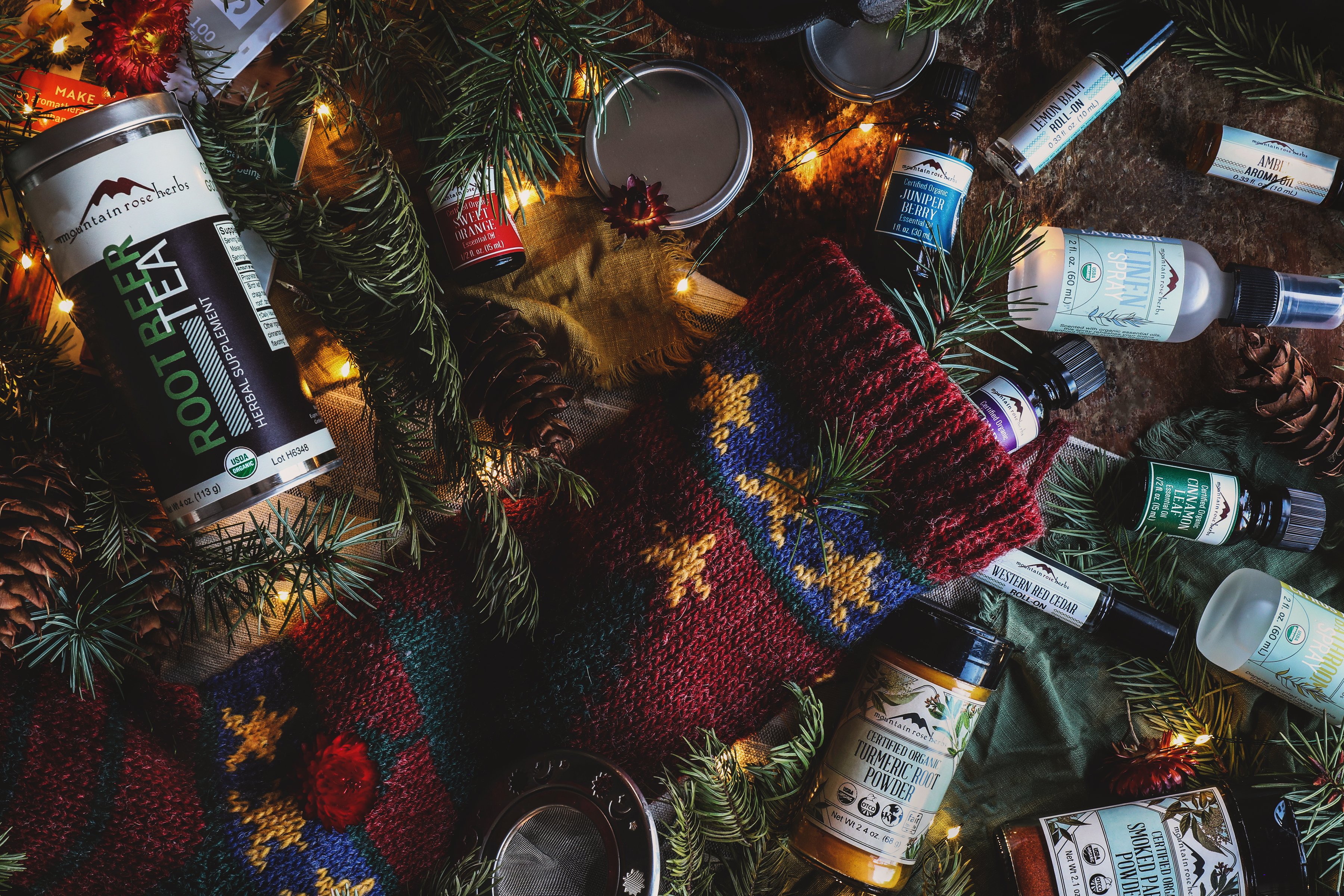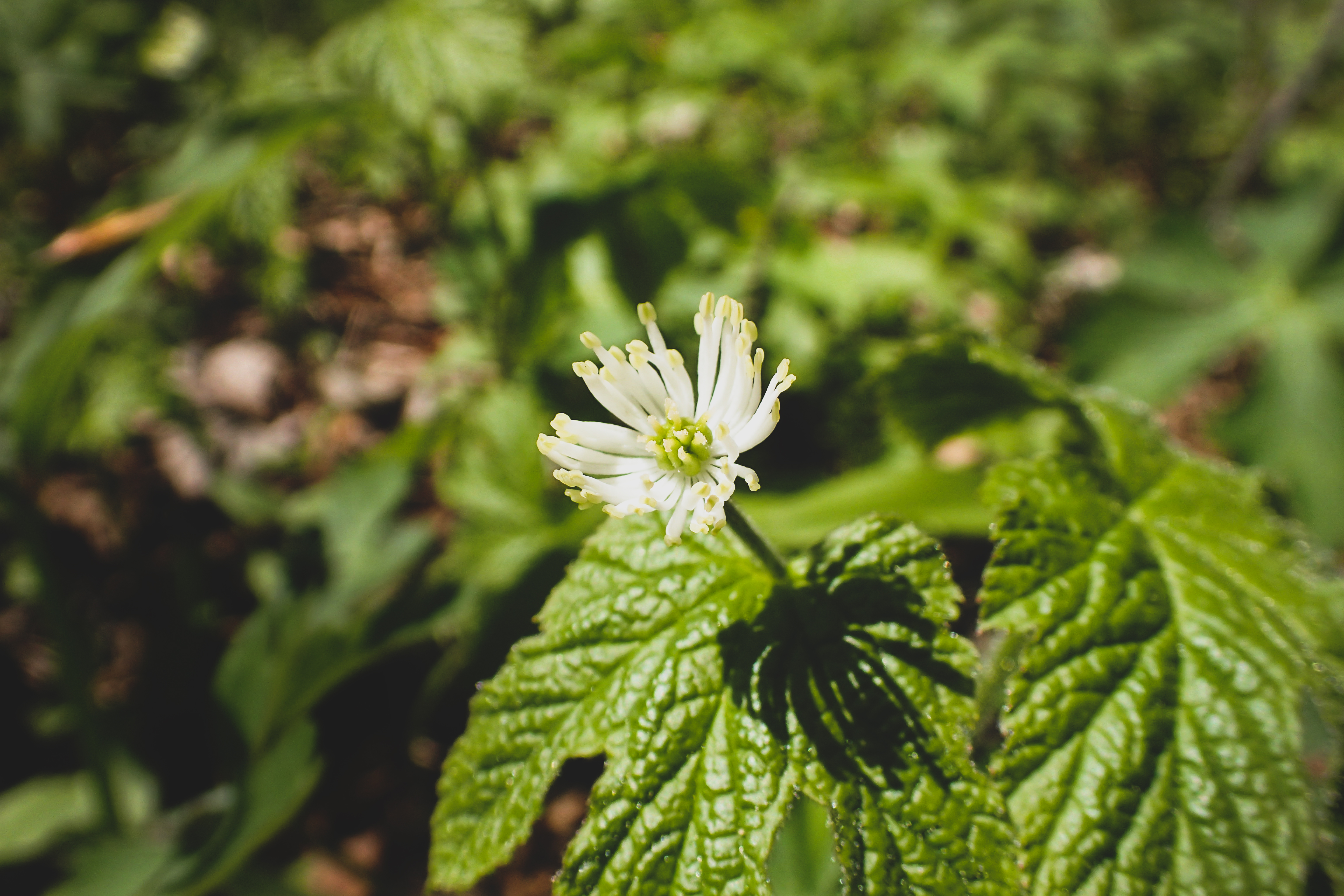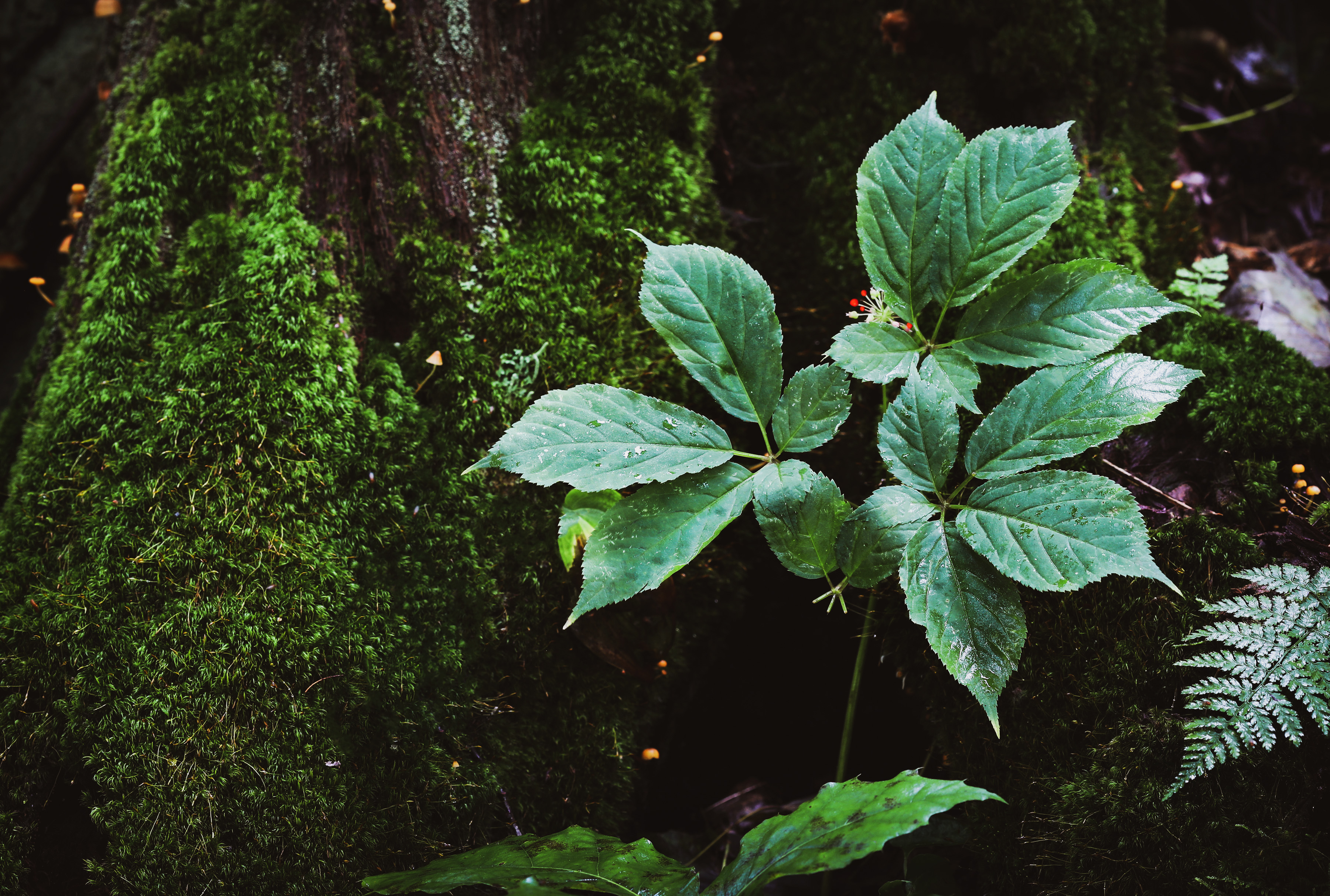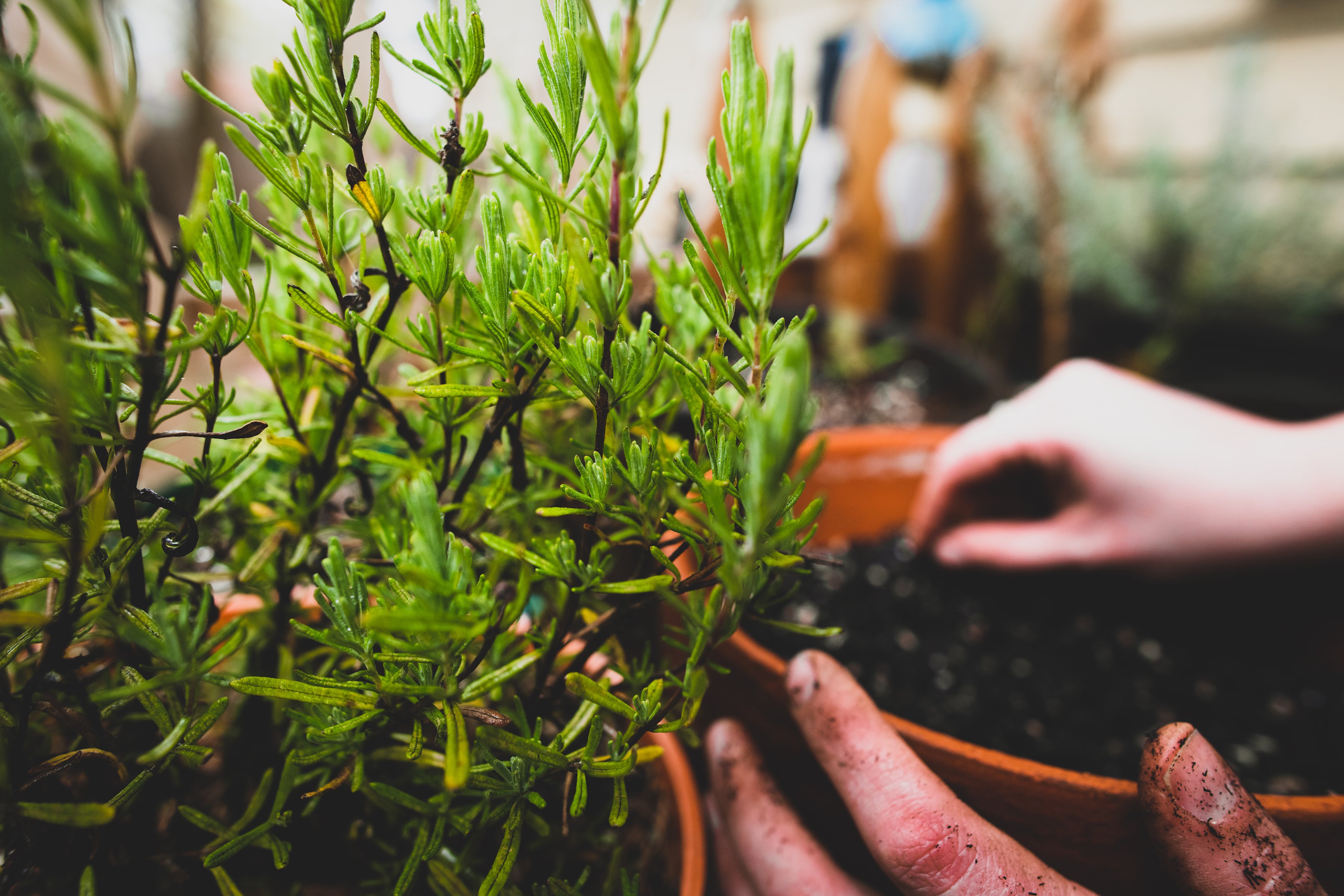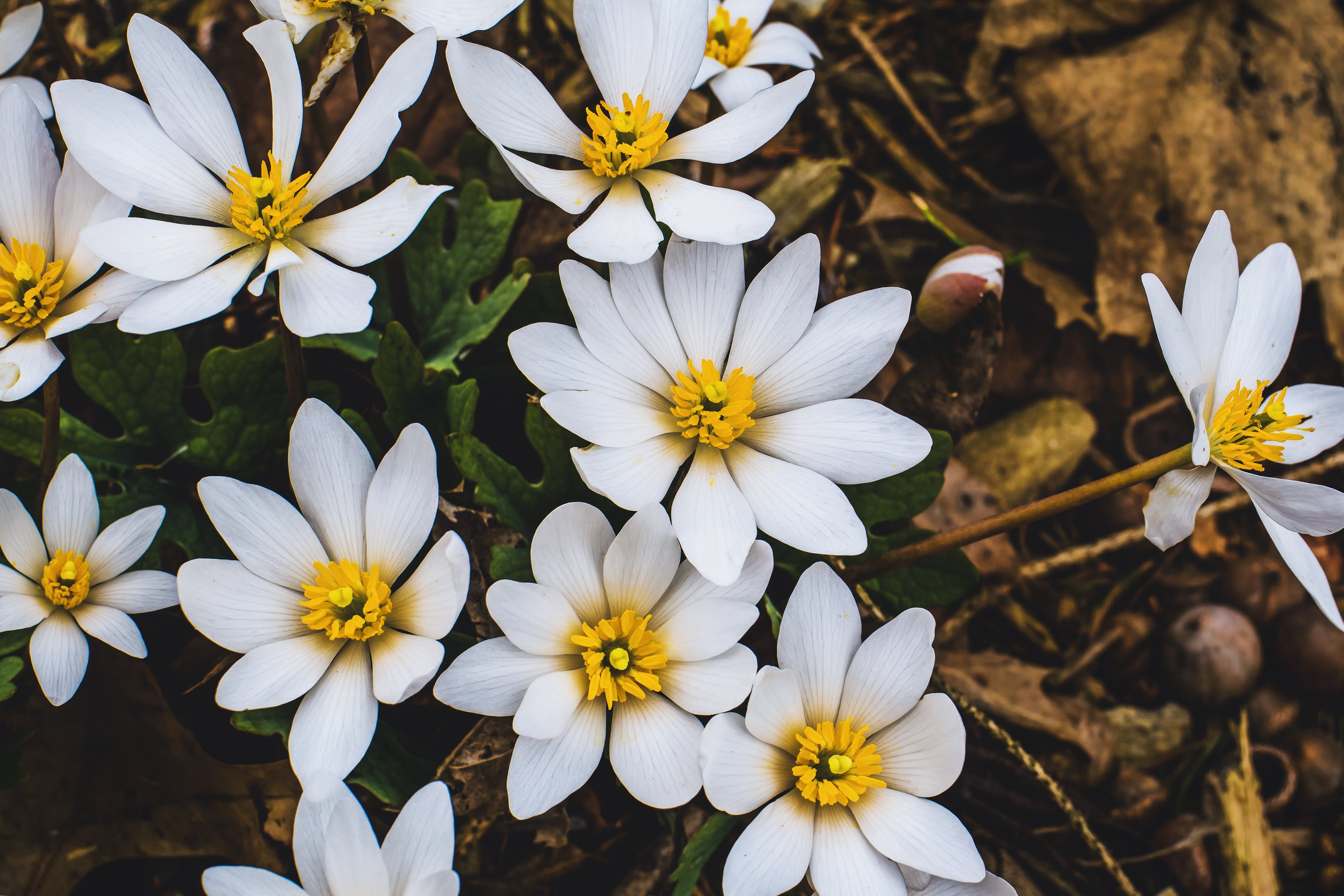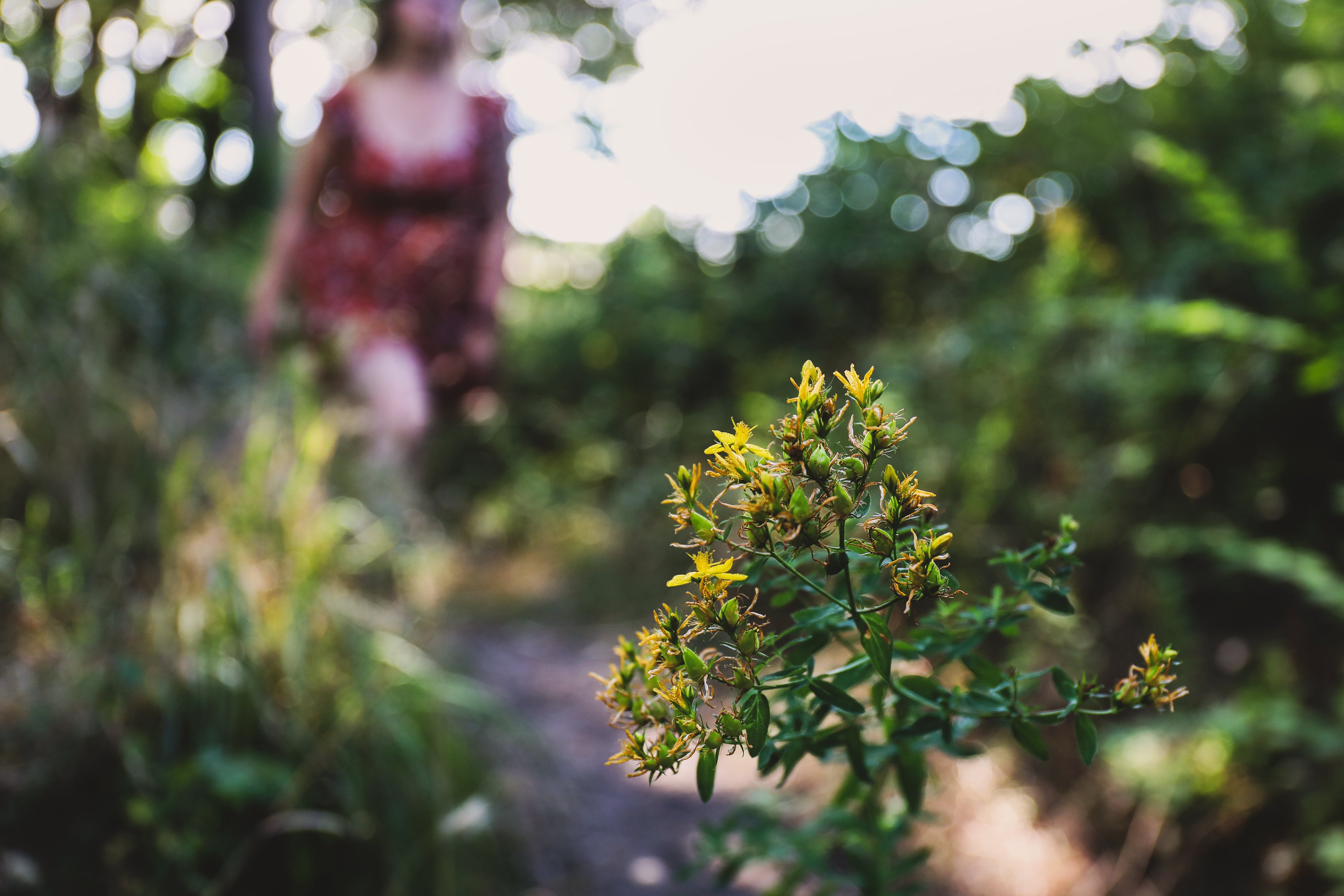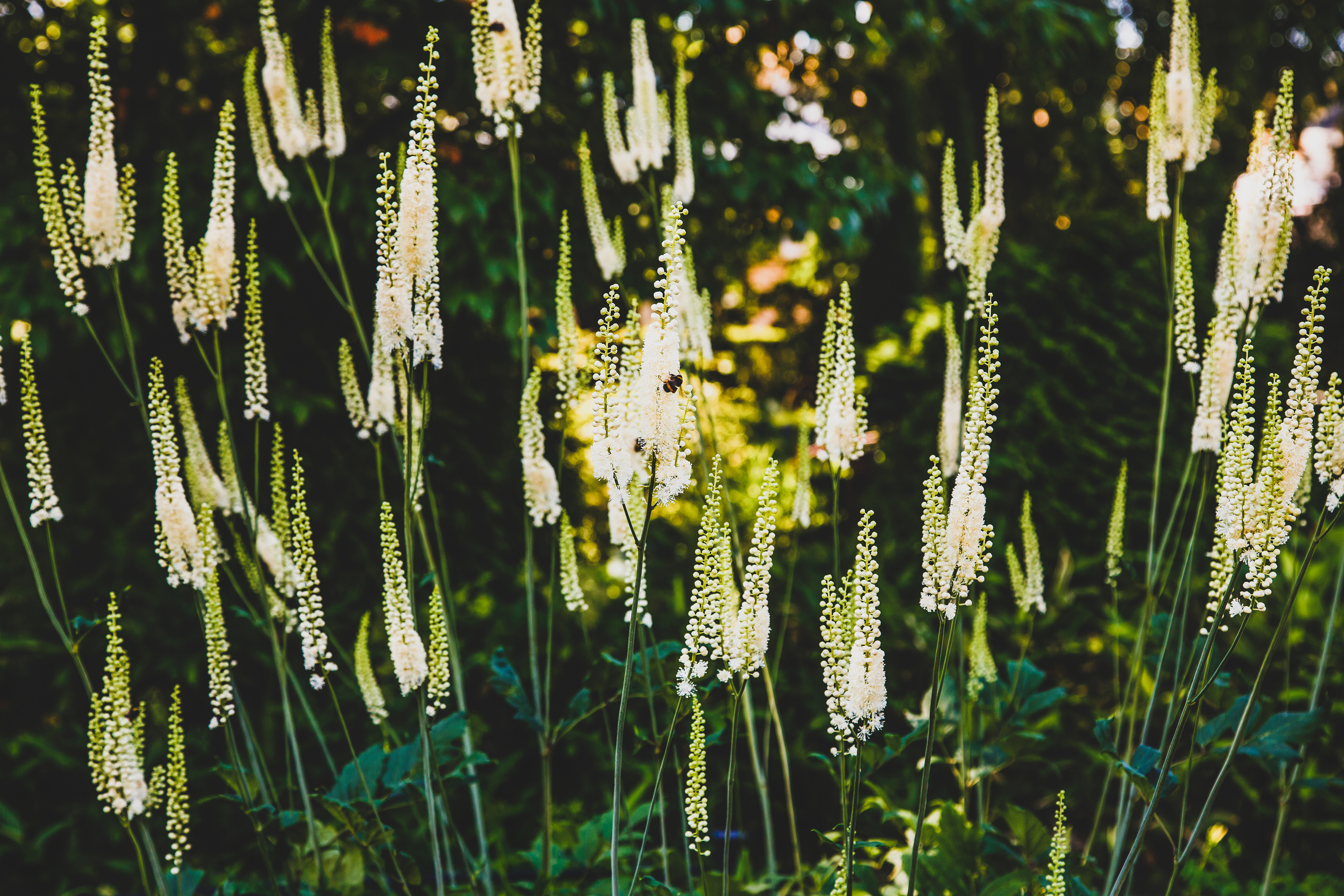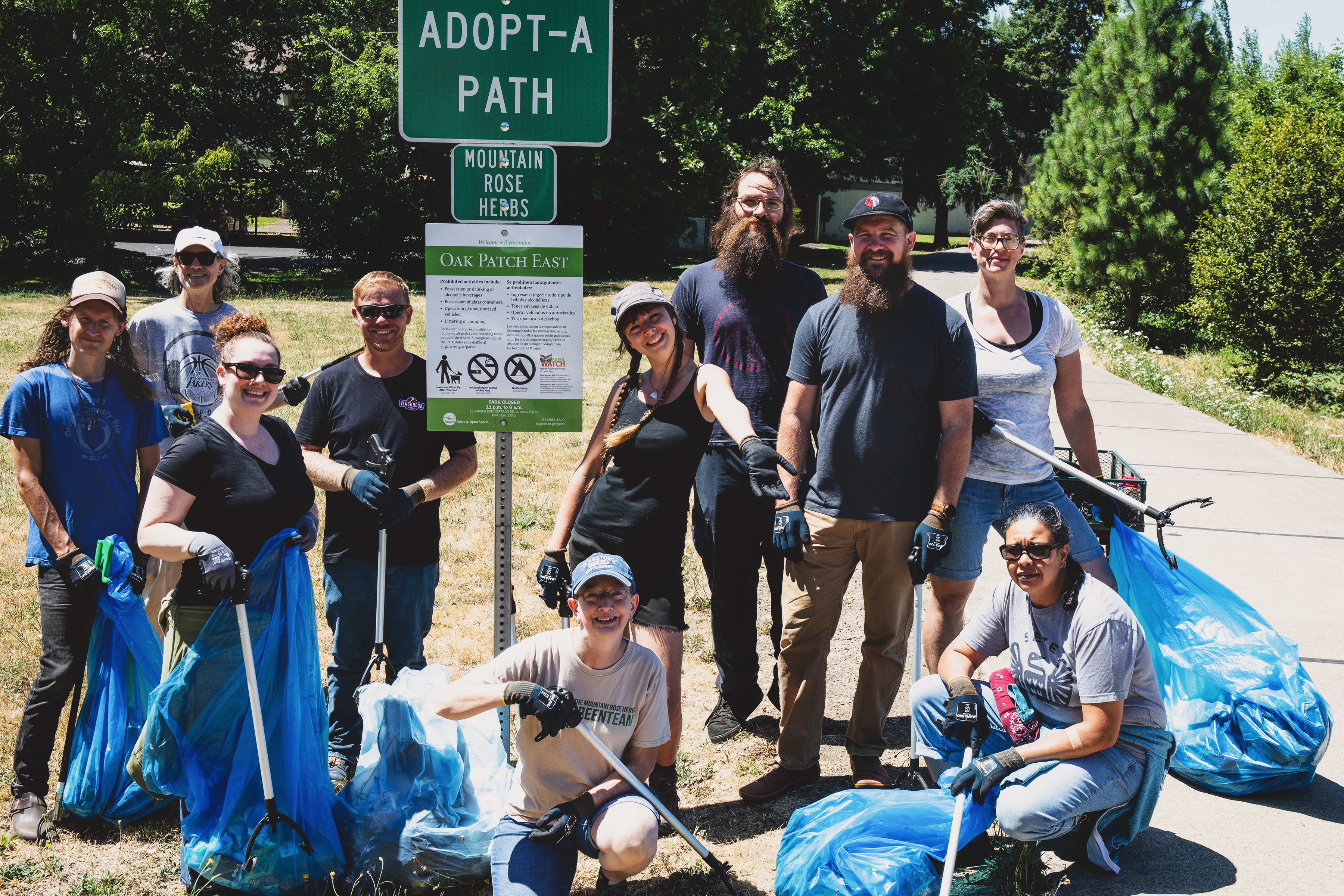In 2001, when we moved Mountain Rose Herbs from California to Pleasant Hill, Oregon, we made the move to be closer to our farm partners, wildharvesters, and processors. But another key factor in our decision was Oregon Tilth Certified Organic (OTCO), a Corvallis, Oregon nonprofit that was reimagining how the world’s food systems could work better for people and the planet. Founded on the fundamental belief that our food and agricultural systems should be sustainable and equitable, Oregon Tilth has spent nearly fifty years workingfororganic food and farming.
Read More
Gift-giving can be difficult, especially during the holidays. Finding the right gift at the right price is hard enough, but then layer on crowded parking lots, long shopping lines, and inclement weather, and you have yourself a recipe for holiday stress! We just don’t need that added pressure in our already hectic lives.
With this in mind, I curated a simple list of budget-friendly gift ideas that you can have delivered right to your doorstep. You’ll find the perfect gifts for the health enthusiast, foodie, tea lover, or fragrance connoisseur in your life. (Or for yourself; you also deserve it!)

Although goldenseal (Hydrastis canadensis) was used by First Nations peoples for hundreds of years before Europeans arrived in the Americas, the first written source regarding goldenseal appears in an 1801 series of essays by botanist and physician Benjamin Smith Barton titled Towards a Materia Medica in the United States. Early colonists found a well-established trade network already in place for medicinal herbs, including goldenseal. Indigenous people used it as a dye and also for a variety of health issues, including as a bitter to support digestion, as a skin and eye wash, and as a dental rinse. By the 1830s, goldenseal was also a favorite of practitioners of Eclectic medicine, and demand was increasing exponentially. That demand has never let up and today goldenseal is considered to be one of the most at-risk herbs on United Plant Savers' At-Risk Medicinal Plants List. There is, however, a potentially bright future for goldenseal thanks to innovations in cultivation.
Read More
As you know, we spend a lot of time thinking about at-risk herbs and what we can all do to support these botanical allies. The issue of overharvesting in the wild is a key reason why Mountain Rose Herbs is increasingly turning to cultivated herbs when possible and why we support certified organic forest farming, particularly for hard-hit herbs like North American ginseng (Panax quinquefolius). We know that to ethically procure these valuable botanicals, they must be consciously and mindfully gathered and harvested. We only work with growers and harvesters who have been fully vetted, who we can trust to cultivate, harvest, and handle our plant allies with the respect and care they deserve. With that in mind, we’d like to show you what successful forest farming looks like.

If you’ve been reading along on the Mountain Rose Herbs blog, you know we’re always looking for ways that we can make smart business choices that address climate change and invest in the health and wellbeing of our community and our planet. Committing to our alternative-fuel and electric fleet of company vehicles is one key piece to this commitment.
Read More
At Mountain Rose Herbs, we have been in a years-long process of shifting our procurement policies away from wildharvested herbs in favor of cultivated ones whenever possible. This policy was necessitated by the increasing impact of overharvesting on some of the most popular herbs and spices around the world. In some cases, for instance with white sage (Salvia apiana), we have been able to source excellent organic, cultivated options, which means we can continue to offer this herbal ally with a good conscience. In other cases, however, as with false unicorn (Chamaelirium luteum) and trillium (Trillium spp.), we have chosen to discontinue carrying an herb because we simply cannot find an ethical way to procure it. As we are navigating an increasingly complex procurement reality, I want to give you a peek behind the curtain, as it were, into why and how we determine what we can sell while prioritizing the overall wellbeing of people, plants, and planet.
Read More
Bloodroot (Sanguinaria canadensis) is one of those herbal allies that has been with North Americans for as long as anyone can remember. For thousands of years, First Nations Peoples used different parts of the plant for a wide variety of issues ranging from skin problems to respiratory and gastrointestinal complaints, and also used it to make dyes. European immigrants, eclectic medicine practitioners, and others learned from the local indigenous peoples and by the early 19th century, bloodroot was officially listed in the United States Pharmacopeia. Today, literally tons of bloodroot are wildharvested every year. Let’s talk about the challenges this herbal ally is facing and how we can support its bountiful future.
Read More
Black cohosh (Actaea racemosa) is one of the top-selling herbal supplements in the United States. According to United Plant Savers (UpS), the harvest of black cohosh in our nation is as much as half-a-million pounds in dry weight per year—and 97% of that harvest is wild-sourced! This level of massive-scale wildharvesting has repercussions and raises concerns about the long-term sustainability of this powerhouse herb. Fortunately, unlike some of our other favorite forest-farmed botanicals, black cohosh is easy to cultivate. While this doesn’t address the immediate issue, it does give us hope for a bright future. Let’s take a deeper look at what we can do to support a sustainable future for black cohosh.
Read More
Here at Mountain Rose Herbs, we want to minimize our carbon footprint both as a company and as a collective community of individuals. One way we do this is through our Alternative Commute Program. For years, we have been encouraging our team members to stay healthy and reduce carbon emissions by not traveling to work in single-occupancy vehicles. This year, to further incentivize and increase participation, we improved the payout structure of the program.
Read More
Mountain Rose Herbs was built on uncompromising principles of ethical and sustainable sourcing of botanicals, but our purpose extends beyond that in the ways we give back. As many of you already know, we donate extensively to environmental nonprofits. But we’ve also created ways for our employees to support local causes that are important to them. In 2011, we launched a Workplace Giving Program in partnership with EarthShare. This employee-led program has generated thousands of dollars in charitable giving to community groups via donations from our employees, which we helped to facilitate through easy and convenient monthly paycheck deductions.
Read More

